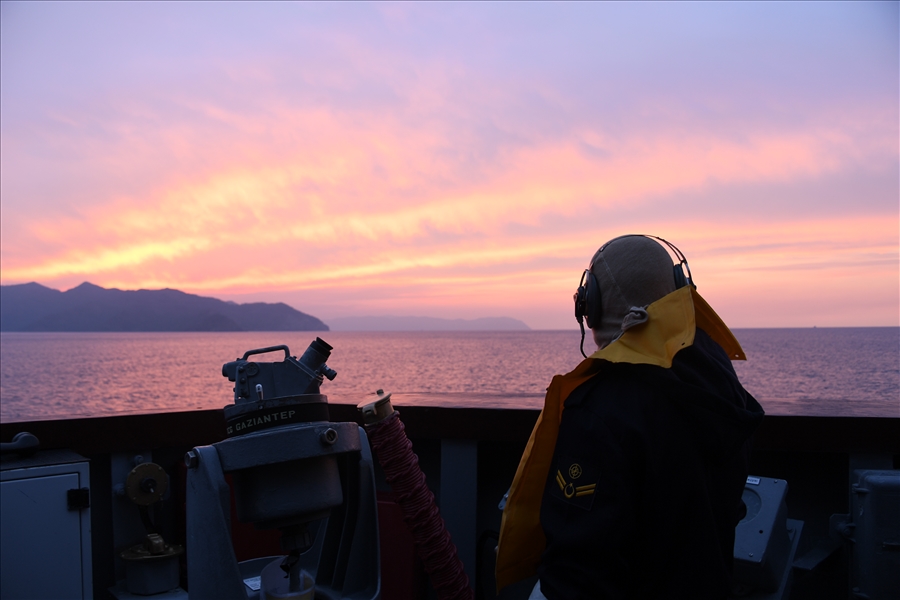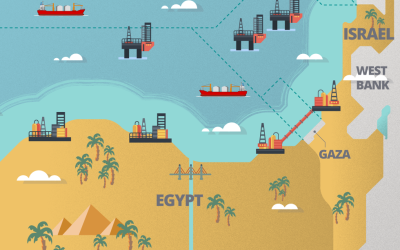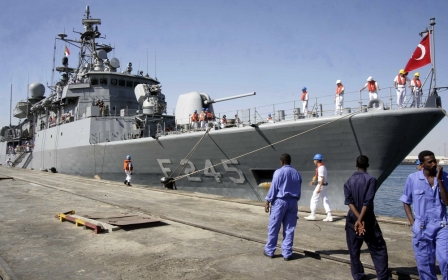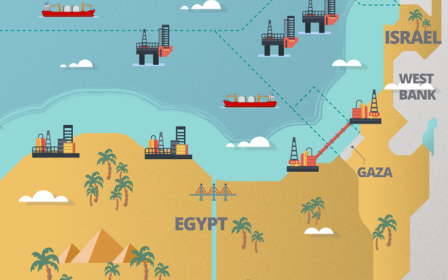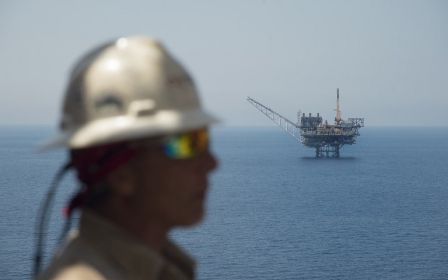Turkey conducts largest ever navy drill as tensions rise in Mediterranean
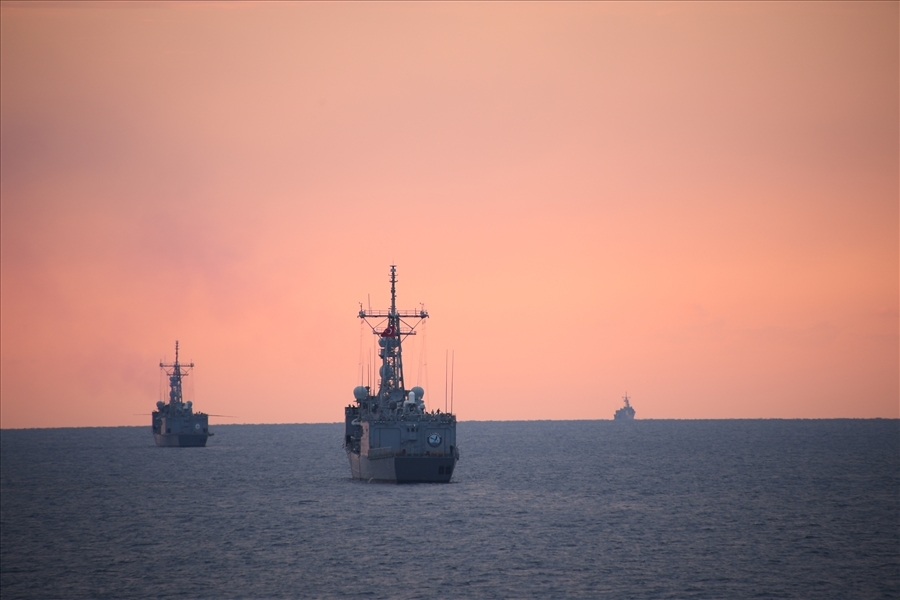
Turkish armed forces began the largest naval exercise in the country's history on Wednesday, with 103 military vessels and thousands of soldiers conducting operations in three seas surrounding the country.
The drill, dubbed “Blue Homeland”, will be held until Saturday, covering over 462,000 square kilometres in the Black Sea, Aegean Sea and eastern Mediterranean.
Over recent months, tensions have been building in the waters to Turkey's west with its neighbours Greece and Cyprus, as the countries vie over subterranean energy resources, particularly natural gas.
As part of the naval exercise, 13 frigates, 6 corvettes, 7 submarines, 7 minehunter vessels, and dozens of patrol and landing ships, along with military helicopters and drones, are conducting war games.
Blue Homeland has already caused disturbance in neighbouring countries, as Greek media reports suggest Athens has perceived it as a source of “renewed concern given the recent tension in bilateral relations”.
New MEE newsletter: Jerusalem Dispatch
Sign up to get the latest insights and analysis on Israel-Palestine, alongside Turkey Unpacked and other MEE newsletters
An Ankara-based source close to Turkey's military, who spoke on condition of anonymity, told Middle East Eye that initial Turkish military plans in September didn’t intend for the scale now seen.
'They wanted to reveal to the world that Turkish navy is capable of simultaneously fighting in three seas surrounding Turkey'
- Deniz Kutluk, retired naval officer
“They changed the plans. It seems to me that they have wanted to send a signal to the region about Turkey's capabilities,” the source said.
Greece's new defence minister and former army chief, Evangelos Apostolakis, sought to play down the drill, describing it as “regular Turkish military training activities”. He said, however, that Greece would still monitor them.
Retired Turkish rear admiral Deniz Kutluk told MEE that Blue Motherland’s main aim was to show the real capabilities of Turkey's navy for deterrence, rather than sending messages to any neighbouring country.
“There was this outside perception that the Turkish navy has been undermined by domestic shocks," he said.
"Senior commanders seem to understand this misperception. That’s why they wanted to reveal to the world that the Turkish navy is capable of simultaneously fighting in three seas surrounding Turkey.”
Be that as it may, the drills come a week after Foreign Minister Mevlut Cavusoglu declared that Turkey would in coming days send two ships to the waters near Cyprus to begin exploring for oil and gas.
"Let those who come to the region from far away, and their companies, see that nothing can be done in that region without us. Nothing at all can be done in the Mediterranean without Turkey, we will not allow that," Cavusoglu said.
According to the Reuters news agency, Turkey's first drillship, Fatih, was launched in October to explore off the coast of Turkey's southern Antalya province. Another ship that it purchased was slated to operate in the Black Sea, but has been diverted instead to the seas around Cyprus.
Asked about the significance of the exercise in terms of the timing and the size, Kutluk said that Turkey was manifesting its strength in the eastern Mediterranean.
“I have heard that three countries [Israel, Greece and Cyprus] were thinking that they could easily overcome the Turkish navy," he said.
"Turkey won’t abandon its rights due to some countries. Turkey has the military advantage in terms of technical capabilities, geostrategy and natural resources.”
Competing countries
Last November, Greece, Italy and Cyprus signed a $7bn deal with Israel to lay a pipeline and purchase Israeli natural gas, which will eventually reach wider European markets.
However, recent reports suggest the deal may be undermined by a separate deal hatched between Egypt and Cyprus, as Cairo looks to profit from its own rich reserves.
Necdet Ozcelik, an independent security analyst who served as an operations sergeant in the Turkish special forces, told MEE that Blue Motherland was being used to demonstrate that Turkey could provide energy security and act as a transit hub for resources in the region.
“The competition in eastern Mediterranean for energy resources will be increasingly under the spotlight as the Syrian crisis comes to an end," he said.
"Turkey is now serving as a land bridge to Europe with several gas pipelines. Gas reserves in Cyprus and Israel might be a real contender against the Turkish alternative, if possible Turkey could also be part of those plans.
"In any case, Turkey is proving that it is militarily capable of protecting its interests in the region, and without its active involvement a solution would be hard to reach in the eastern Mediterranean."
Middle East Eye delivers independent and unrivalled coverage and analysis of the Middle East, North Africa and beyond. To learn more about republishing this content and the associated fees, please fill out this form. More about MEE can be found here.


